RTSL Recognized by Ethiopia’s Ministry of Health for Advancing Scalable Health Innovations
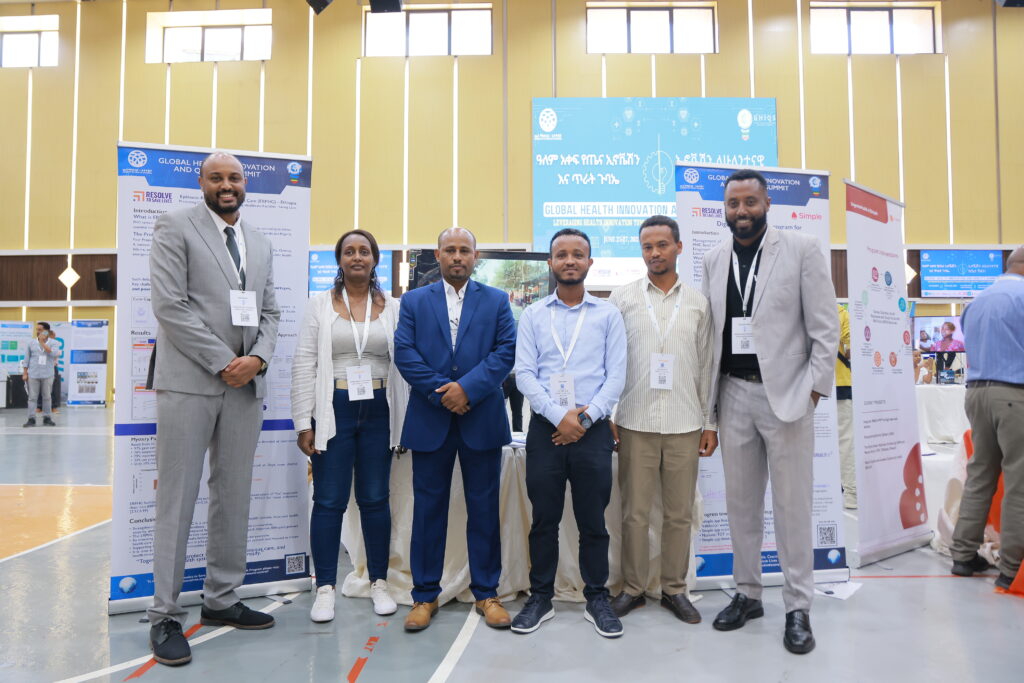
At the Global Health Innovation and Quality Summit in Addis Ababa, Ethiopia’s Ministry of Health recognized Resolve to Save Lives for its impactful support in strengthening the country’s health system. The honor highlights RTSL’s commitment to scalable, evidence-based solutions that improve care and save lives.
Advancing subnational health security through legal reform in Nigeria

We spoke with Emem Udoh, a senior legal advisor at Resolve to Save Lives, to find out how his team is using state-level legal reforms to keep Nigeria safe from public health threats.
How fake patients are helping real health facilities prevent epidemics
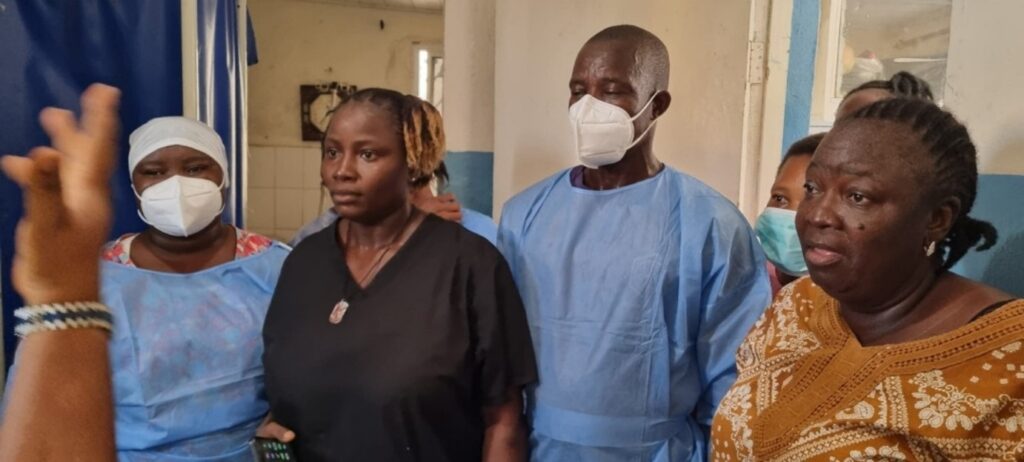
We tested the epidemic readiness of primary health facilities in four countries using “mystery patients”.
Talking “Foundations for sustainable health” with Gates Foundation at the World Health Assembly

Launching our blueprint for epidemic-ready, climate resilient and sustainable primary health care.
Ethiopia National Infection Prevention and Control Policy
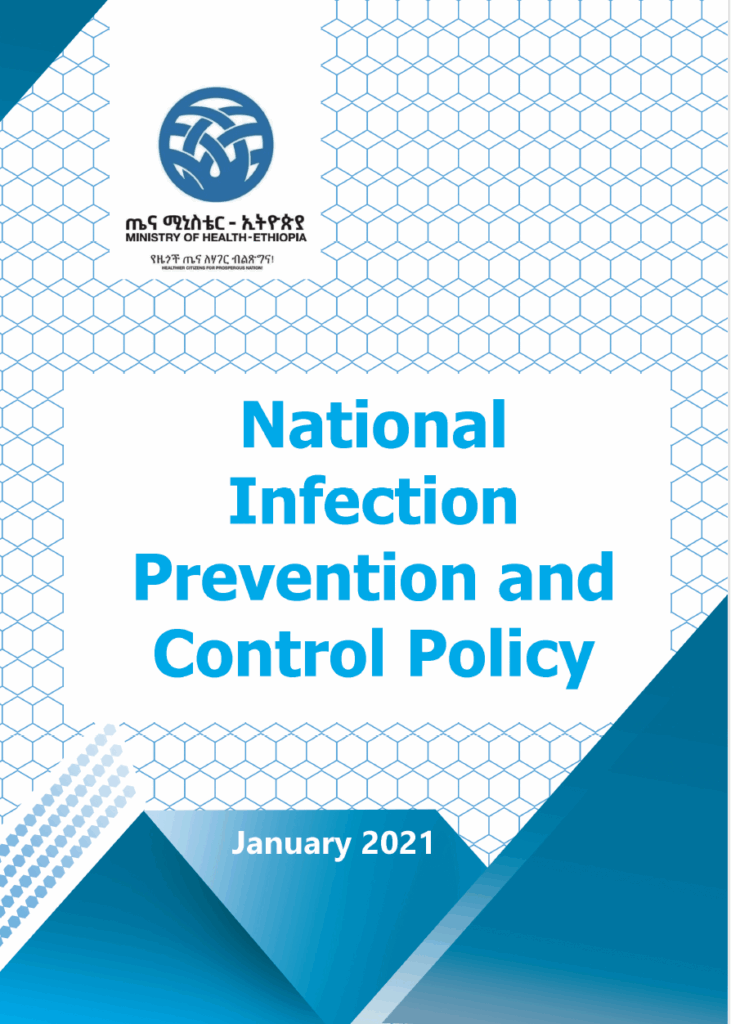
The Ministry of Health Ethiopia, in collaboration with all relevant stakeholders; in line with internationally acclaimed standardized recommendations has developed this National Infection Prevention and Control Policy for Health Care Services to assist health care workers and other IPC stakeholders in the design, implementation, monitoring, and evaluation of IPC programs in Ethiopia. The Ministry remains […]
Ethiopia National Infection Prevention and Control Program (IPC) Monitoring and Evaluation Plan 2021/22-2025/26
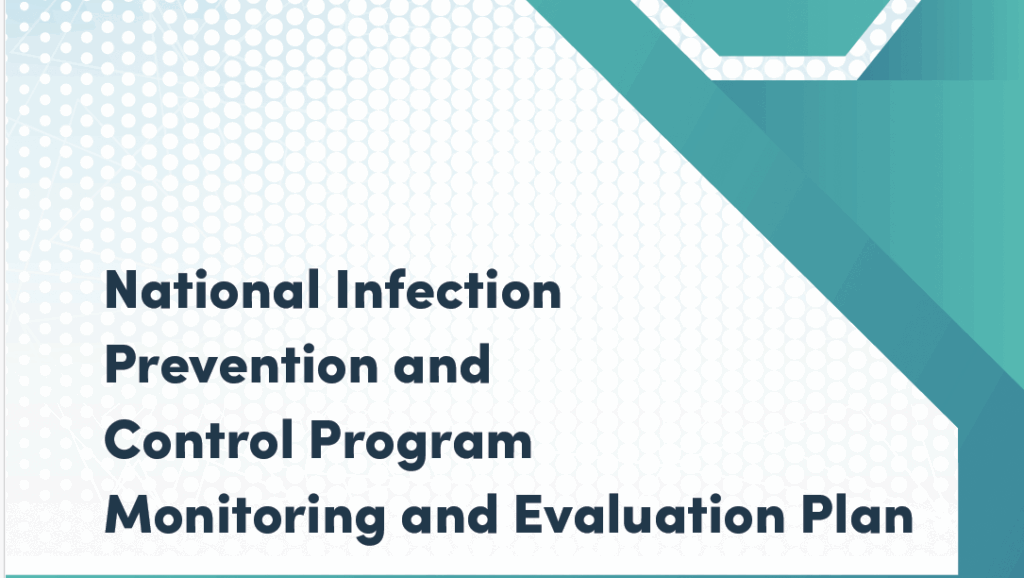
This IPC Monitoring and Evaluation Plan 2021-2026 from Ethiopia’s Ministry of Health was developed to be used at all levels of the health care system and will help to measure and monitor the progress of the implementation of the national IPC Policy, Strategy recommendations and Strategy Roadmap activities including the IPC practices at health facility […]
Ethiopia National Healthcare Associated Infections (HAIs) Surveillance Guideline
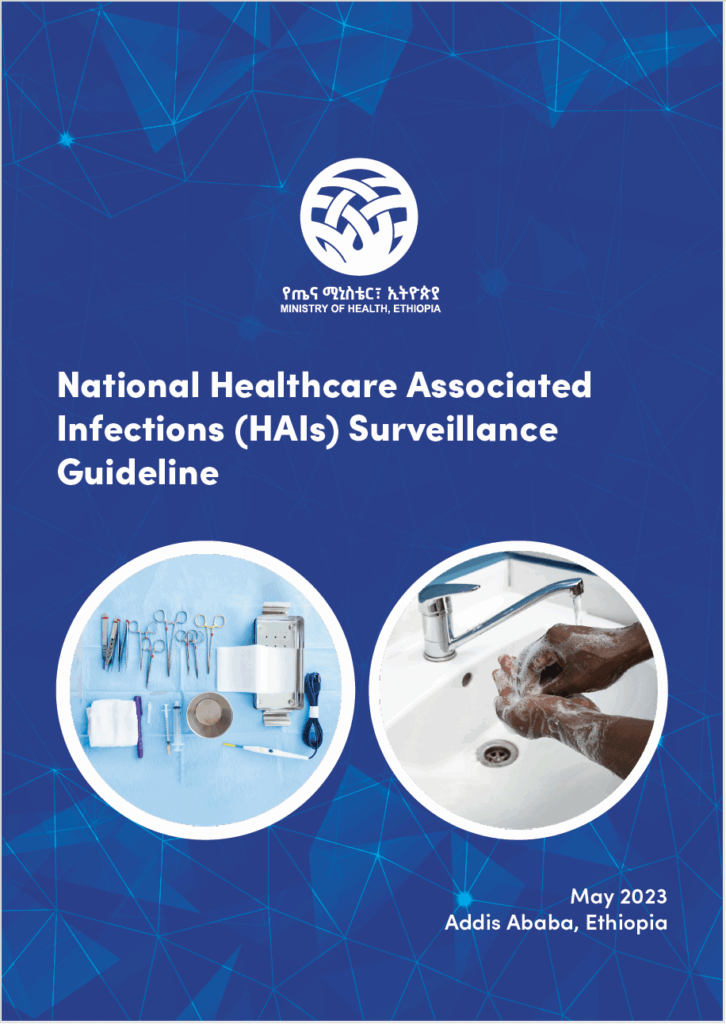
Ethiopia National Healthcare Associated Infections (HAIs) Surveillance Guideline is intended to serve as a guide for health care professionals in general, and for IPC professionals in particular, to ensure that the critical elements and methods of surveillance for health care-associated infections (HAIs) are incorporated into their practice. It provides guidance for each of the surveillance […]
Ethiopia National Infection Prevention and Control Strategy and Roadmap 2021/22-2025/26
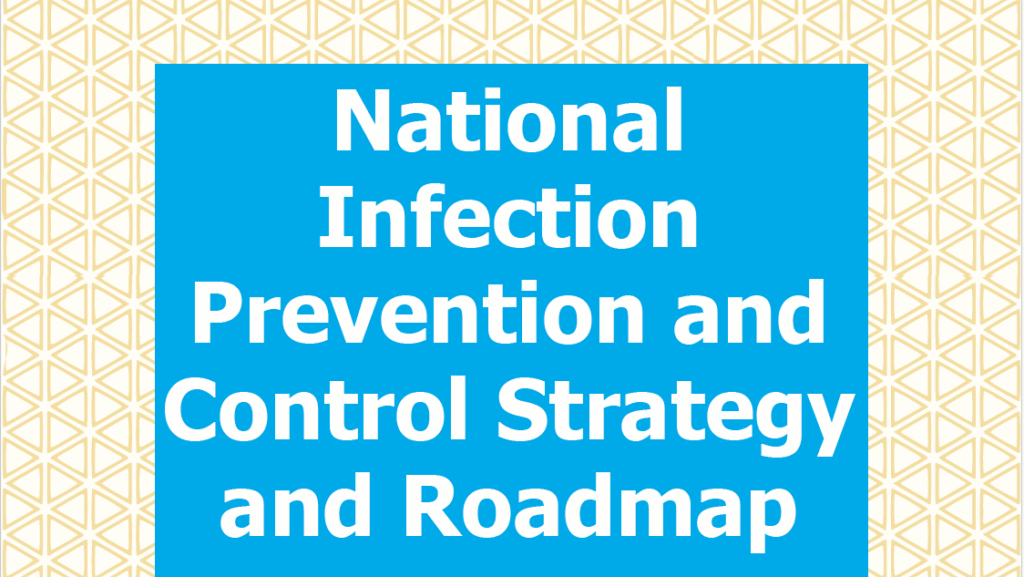
Ethiopia’s national IPC strategy and roadmap for 2021-2026 is intended to guide and outline the strategic interventions required to prevent, reduce and control the development of health care-associated infections (HAIs) and antimicrobial resistance (AMR), ultimately improving patient safety and health outcomes.
Ethiopia national IPC reference manual, Volume 2: Advanced and special settings
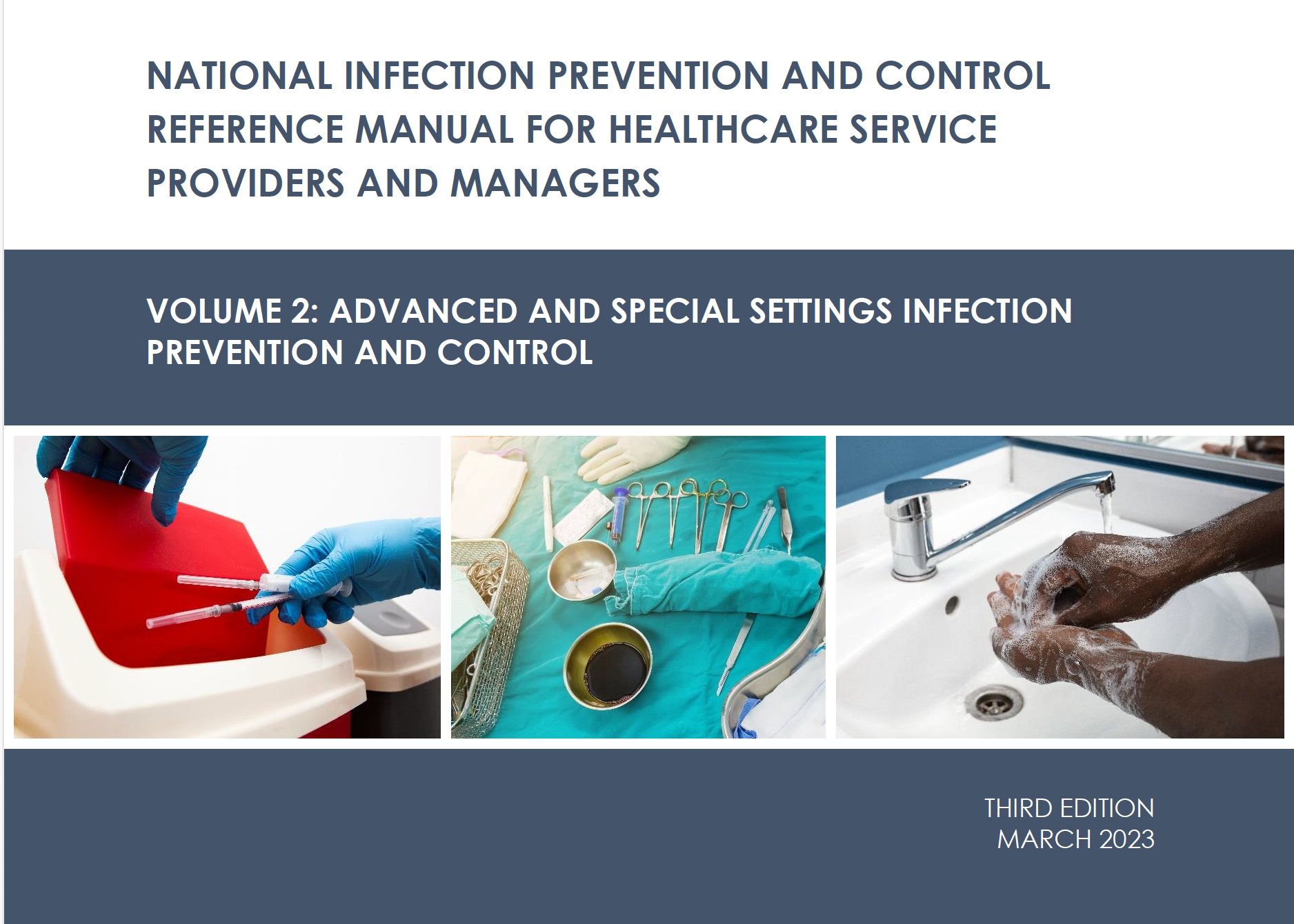
Full title: National infection prevention and control reference manual for healthcare service providers and managers, Volume 2: Advanced and special settings infection prevention and control, Third edition. The manual is divided in two volumes: Volume I covers general IPC and Volume II addresses more advanced IPC and special settings. The document serves as a standardized […]
Ethiopia national IPC reference manual, Volume 1: General infection prevention and control
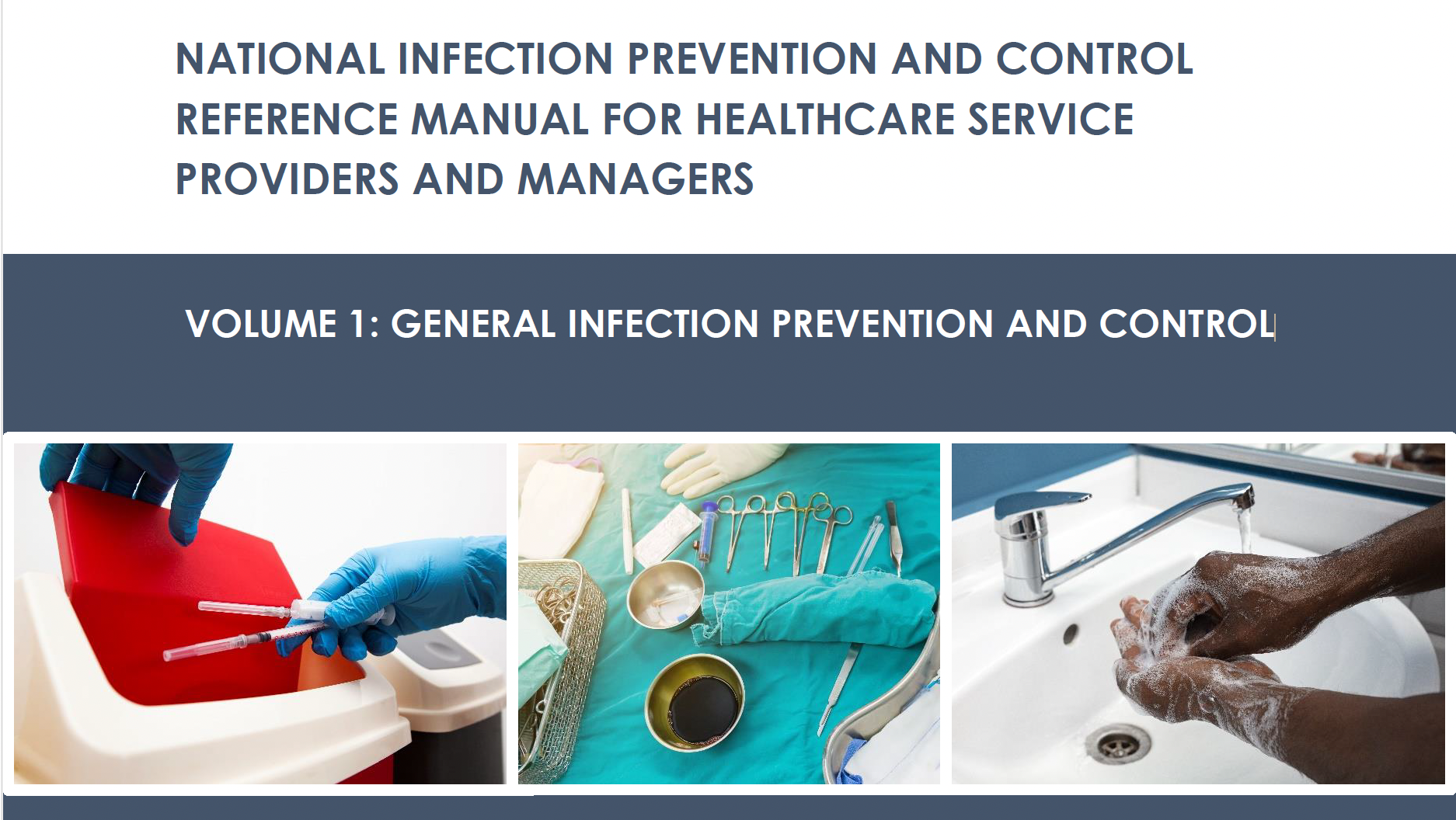
Full title: National infection prevention and control reference manual for healthcare service providers and managers, Volume 1: General infection prevention and control, Third edition. The manual is divided in two volumes: Volume I covers general IPC and Volume II addresses more advanced IPC and special settings. The document serves as a standardized IPC reference manual […]
From signals to systems: Strengthening epidemic readiness through climate-informed strategies
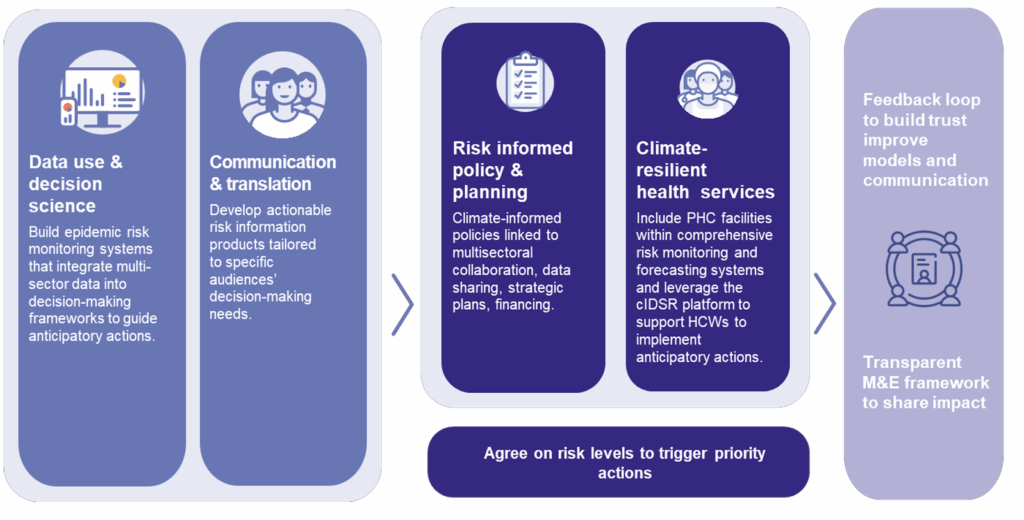
This issue brief outlines how Resolve to Save Lives is supporting governments to strengthen epidemic readiness by integrating climate data into health systems. Key strategies include building epidemic risk monitoring systems using real-time climate data, improving communication of climate-health risks, embedding climate-sensitive protocols into health policy and developing resilient primary health care infrastructure. These efforts […]
Advocacy for action: domestic financing for IPC in Ethiopia
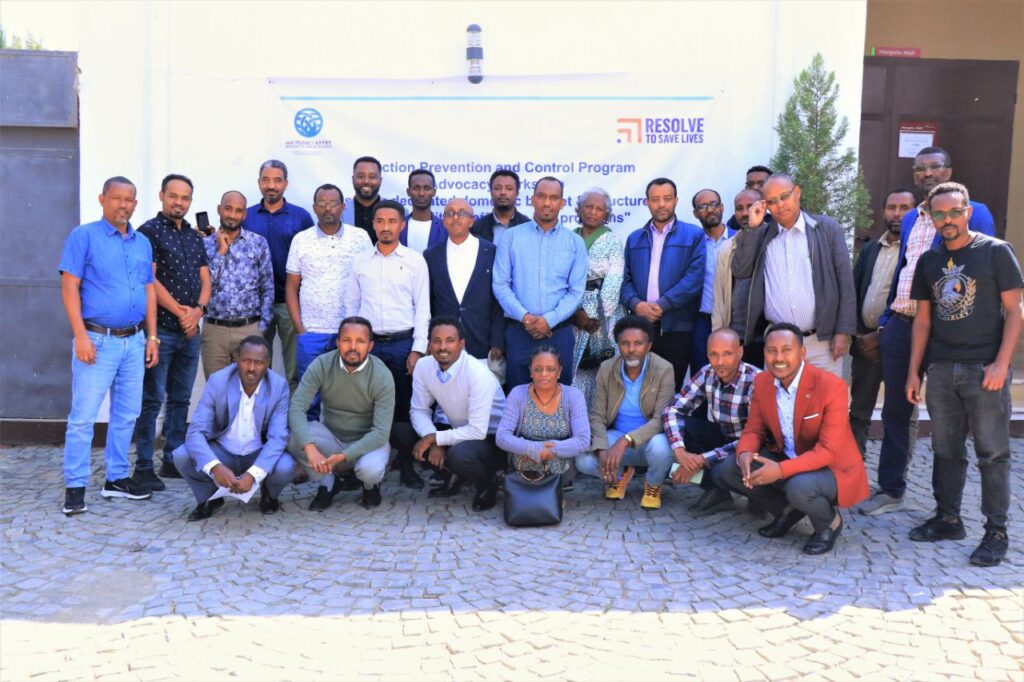
A two-day advocacy workshop focused on the need to strengthen IPC programs to combat health care-associated infections and address the growing threat of antimicrobial resistance.
How “Epidemic-Ready” health facilities in Sierra Leone stopped measles in its tracks
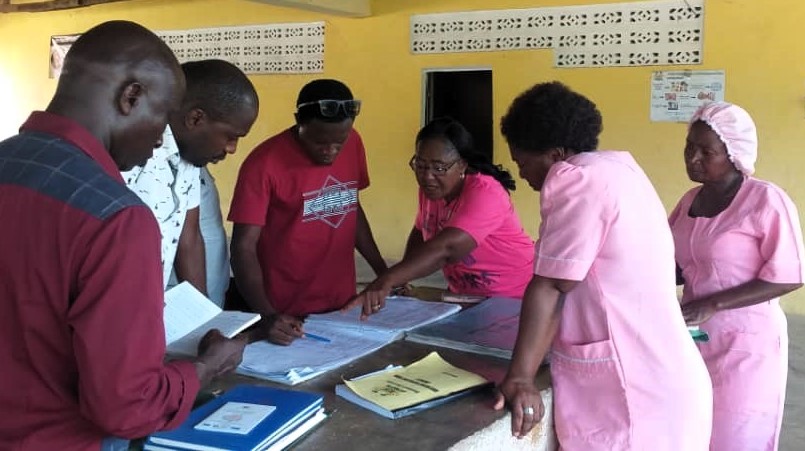
We partnered with primary health facilities in Sierra Leone to train frontline workers to detect and report infectious disease cases.
“Epidemic-Ready” health care workers in Uganda sound the alarm to end outbreaks faster
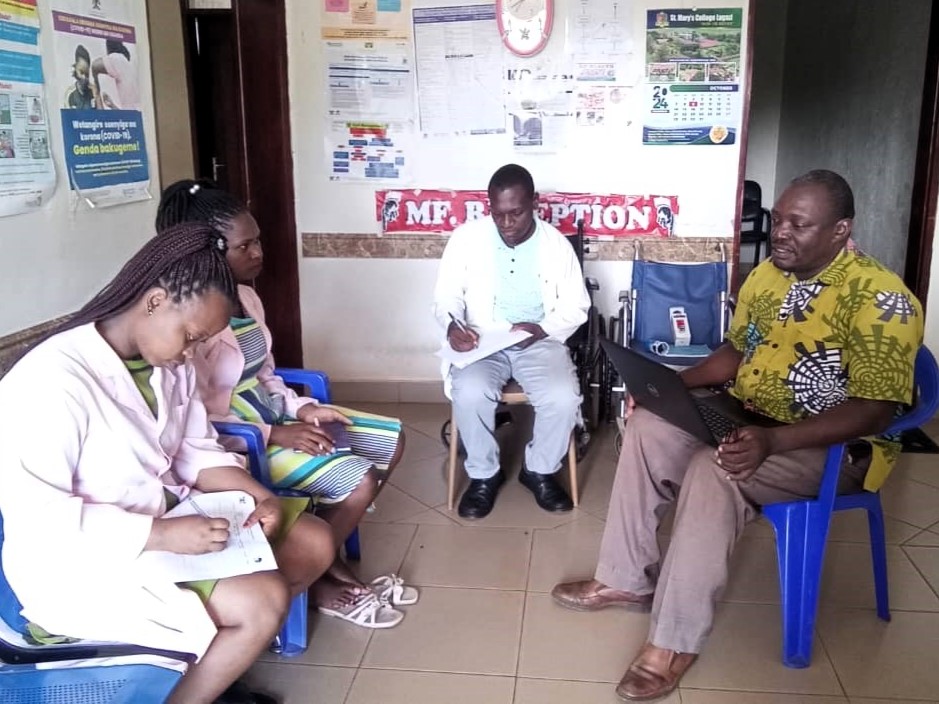
We partnered with Uganda’s Infectious Diseases Institute and its MoH to equip frontline health workers to quickly spot and report infectious disease threats in an Epidemic-Ready Primary Health Care project.
Connect, detect, protect, treat: learnings from implementing Epidemic-Ready Primary Health Care
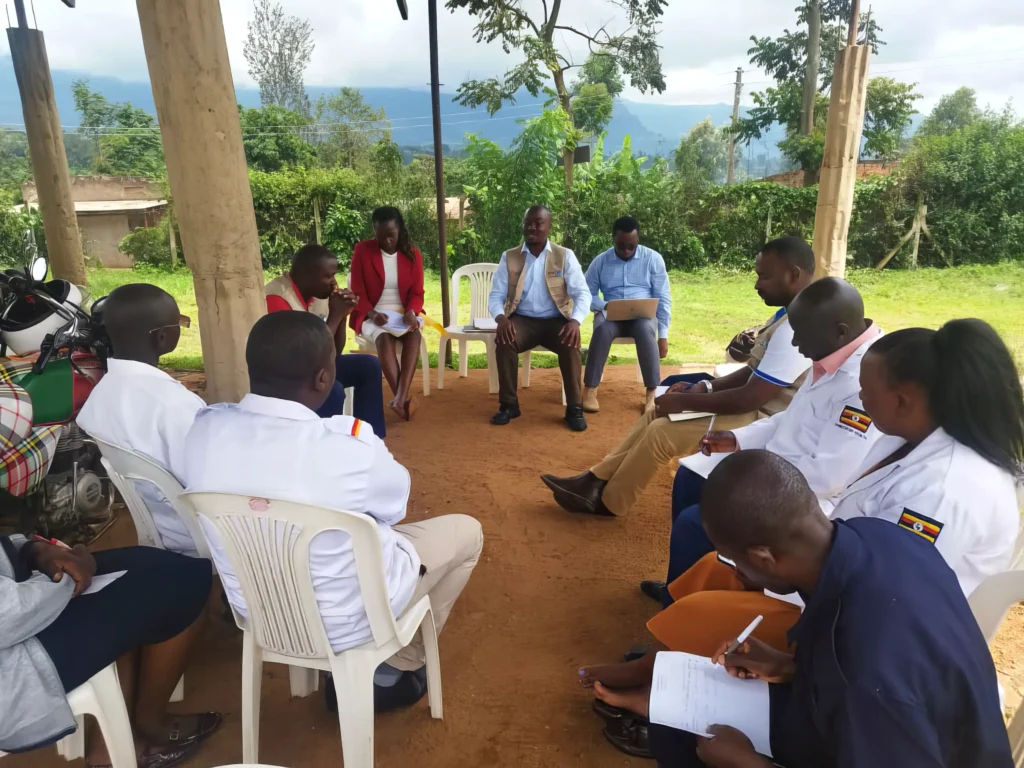
Resolve to Save Lives is partnering with primary health facilities to make sure they’re ready to stop the next epidemic.
Training health care workers to prevent epidemics—with their smartphones

Resolve to Save Lives partnered with HealthLearn to develop free, mobile-optimized training courses that help frontline health care workers recognize, report and contain infectious disease outbreaks. Recently, one of these training modules was released as a standalone to support Nigeria through a cholera outbreak, allowing frontline workers to more effectively identify and report suspected cases […]
Training health care workers to prevent epidemics—with their smartphones

Resolve to Save Lives and our partners at HealthLearn developed free, mobile-optimized training courses that help frontline health care workers recognize, report and contain infectious disease outbreaks.
Prévention et contrôle des infections contre la maladie à virus Ebola et la COVID-19
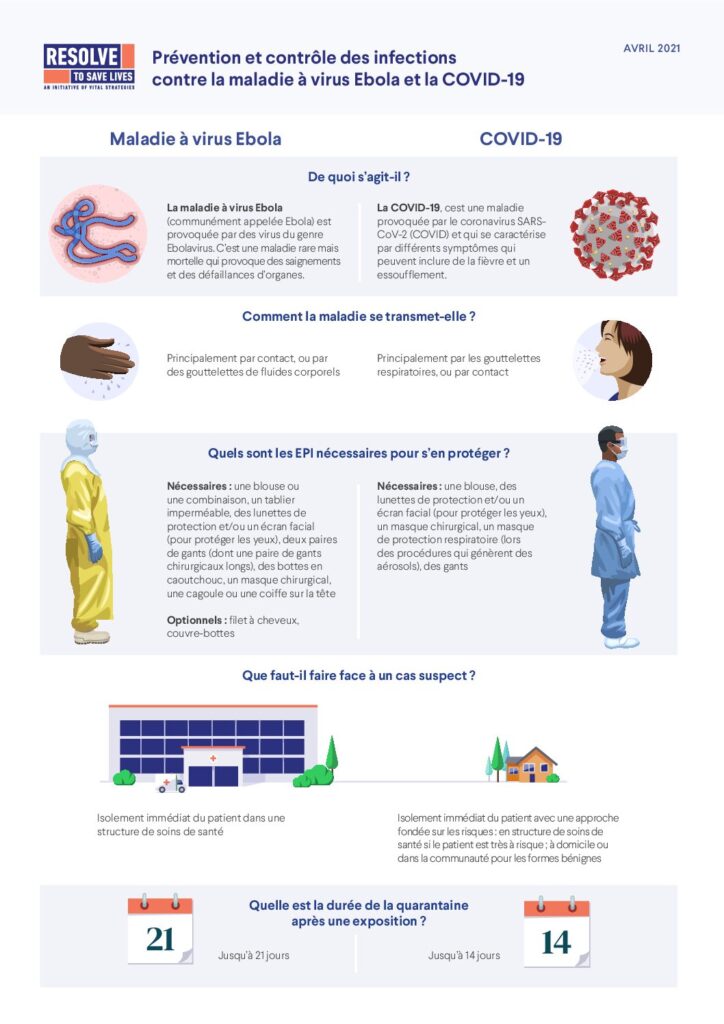
Fiche d’information sur la prévention et le contrôle des infections contre la maladie à virus Ebola et la COVID-19.
Messages clés de prévention et contrôle des infections (PCI) pour la maladie à virus Ebola dans les structures de soins de santé
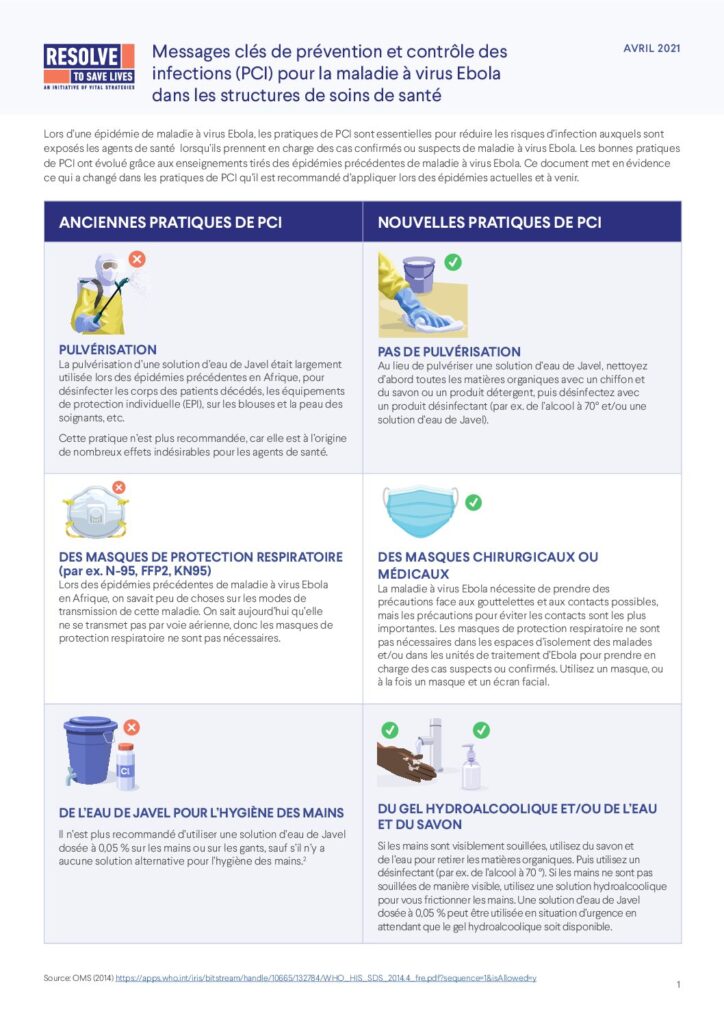
Fiche d’information sur les messages clés de ce qui a changé dans le pratiques de PCI qu’il est recommandé d’appliquer lors des épidémies actuelles et à venir.
Key Infection Prevention and Control (IPC) Messages for Ebola Virus Disease (EVD) at Health Care Facilities
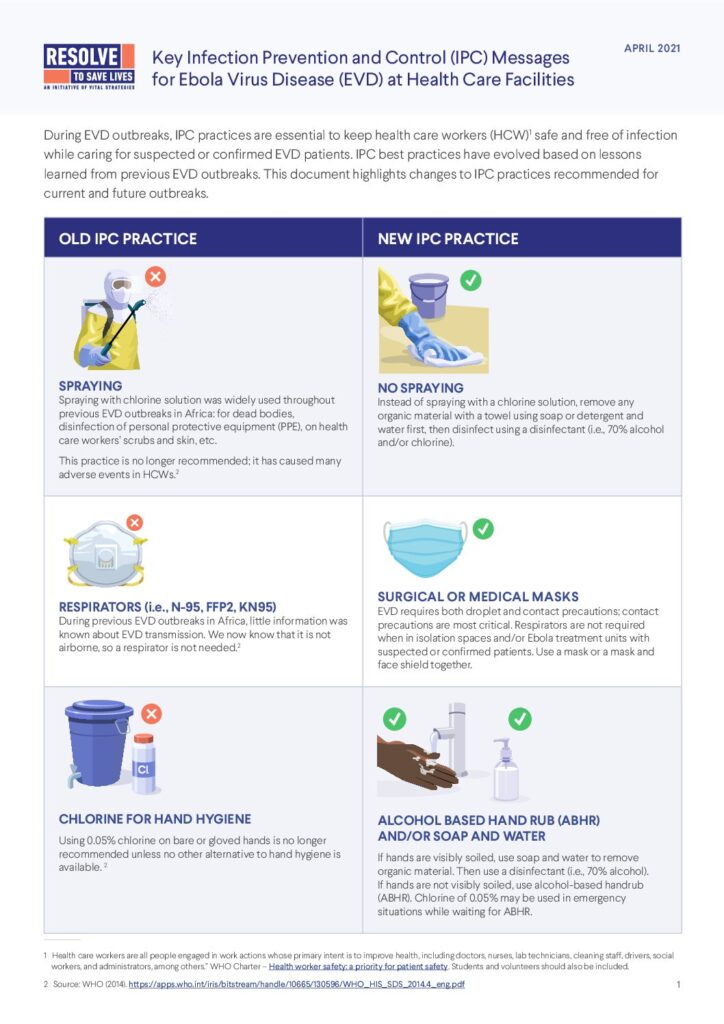
An overview of changes to infection, prevention and control (IPC) practices recommended for Ebola Virus Disease (EVD) outbreaks.
New report offers lessons on stopping disease outbreaks, amid global spread of H5N1
Resolve to Save Lives report shows how public health specialists around the world controlled bird flu and other outbreaks last year June 18, 2024 (New York, NY) – With the highly contagious H5N1 avian influenza (bird flu) spreading worldwide, Finland provides a lesson in how to bring an outbreak under control quickly. After a deadly outbreak […]
The road to achieving epidemic-ready primary health care
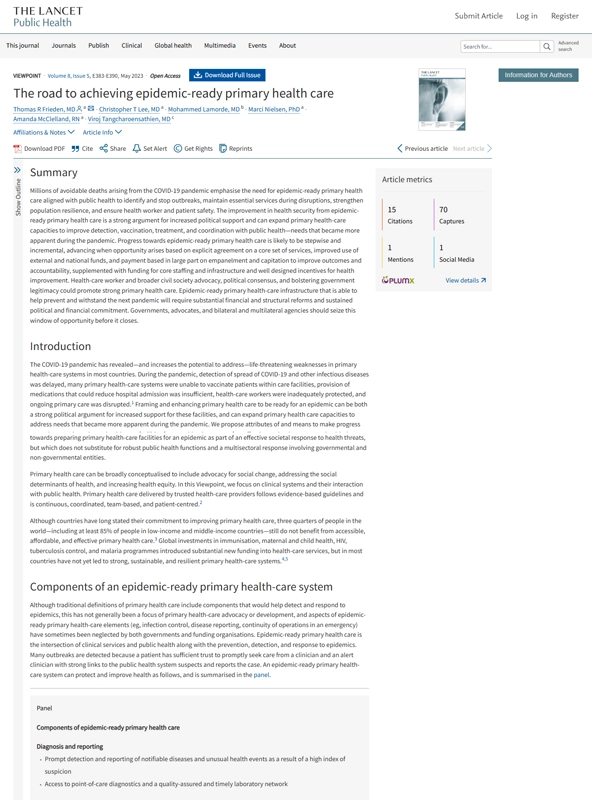
A new model for integrating public health and health care delivery— epidemic-ready primary health care—that can identify and stop outbreaks, maintain essential services during disruptions, strengthen population resilience, and ensure health worker and patient safety. For the Lancet Global Health, we argue that strengthening primary health-care capacities for detection, vaccination, treatment, and coordination with public […]
Launching our new Epidemic-Ready Primary Health Care program
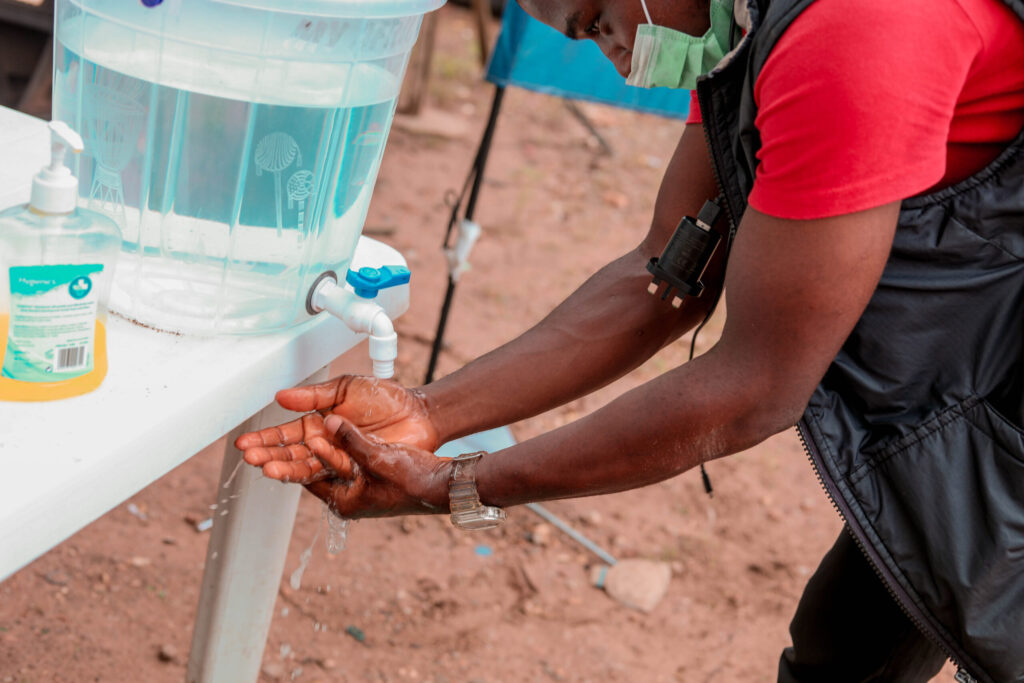
In Ethiopia, Nigeria, Sierra Leone, and Uganda, we’ll support primary health facilities to detect outbreaks promptly and safely deliver essential services.
Safer primary healthcare facilities are needed to protect healthcare workers and maintain essential services: lessons learned from a multicountry COVID-19 emergency response initiative
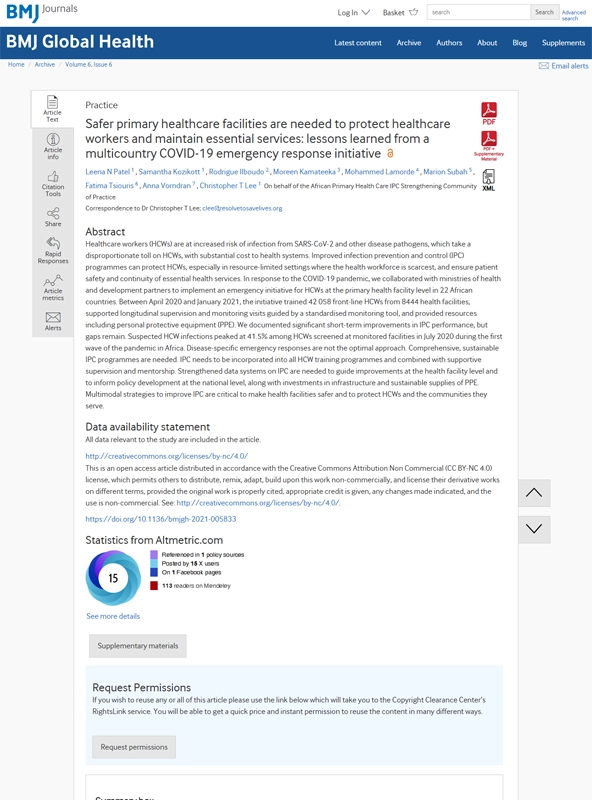
While an infection prevention and control initiative improved COVID-19 infection rates for health care workers in Africa, ongoing challenges demonstrated the need for long-term investments in sustainable IPC programs. In BMJ Global Health, Resolve to Save Lives examines an infection prevention and control (IPC) initiative implemented in 22 African countries from April 2020 to January […]
The road to achieving epidemic-ready primary health care

Stopping epidemics starts with primary health care.
Rapid scale-up of COVID-19 training for frontline health workers in 11 African countries

Effective outbreak response requires sustained investments in health systems—going beyond training to include adequate equipment, space and staffing levels. For Human Resources for Health, our colleagues at ICAP at Columbia University analyzed a COVID-19 response training program for health care workers in 11 African countries in mid-2020. While confidence in managing COVID-19 increased, barriers like […]
Modelling the economic burden of SARS-CoV-2 infection in health care workers in four countries
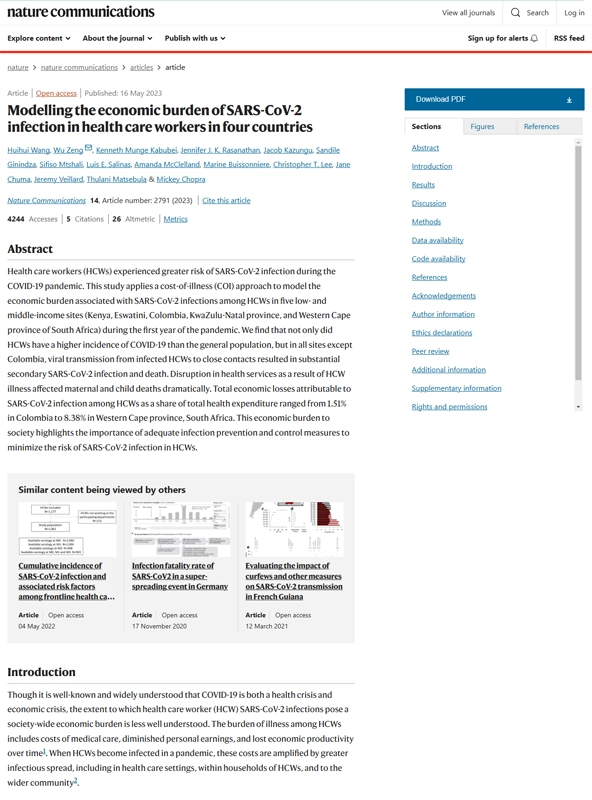
SARS-CoV-2 infections among health care workers caused up to 8.38% of total health expenditures in five low- and middle-income countries, underscoring a need for stronger protection measures for frontline workers, who faced increased risk of infection during the COVID-19 pandemic. Writing in Nature Communications, experts at Resolve to Save Lives used a a cost-of-illness (COI) […]
Health care worker training at scale: reflections from COVID-19
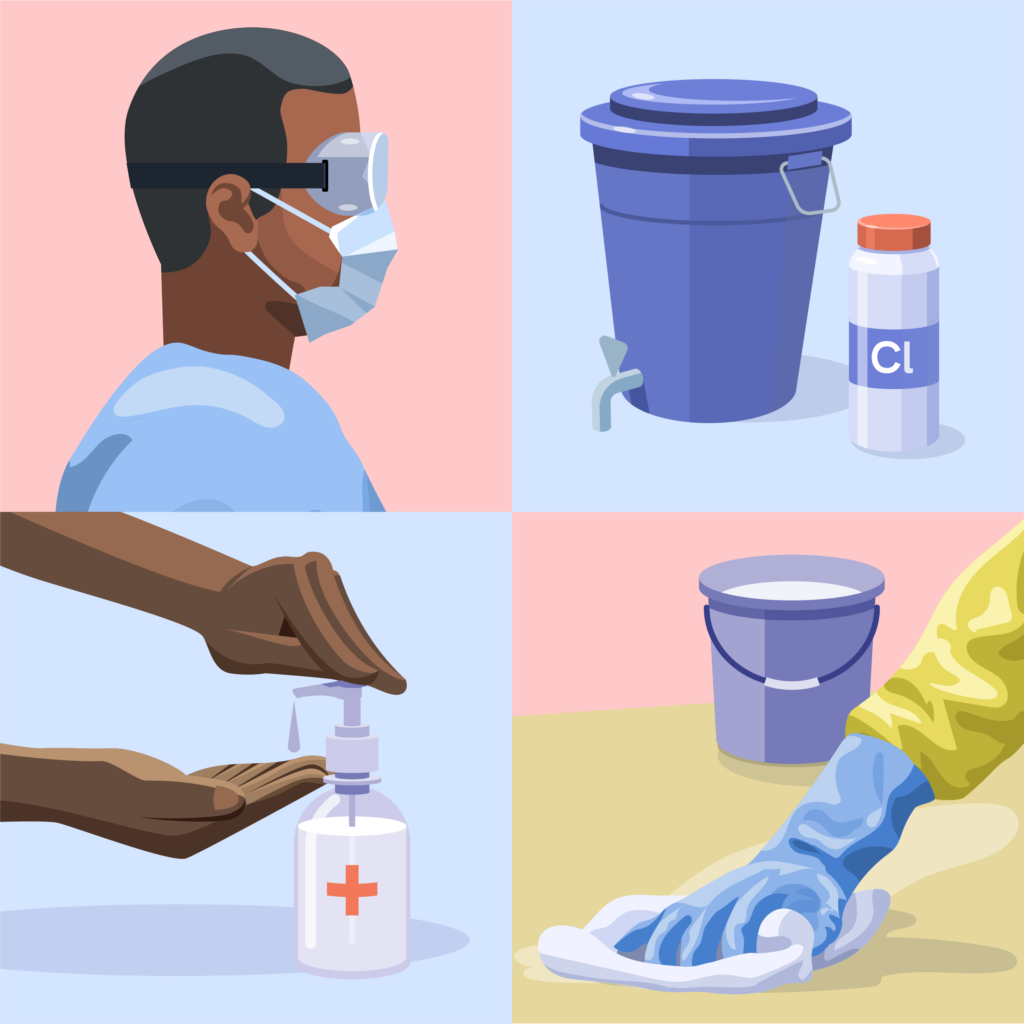
Mobile-optimized, case-based online courses keep health care workers up to date more effectively.
Supporting health care workers to promote service continuity during the COVID-19 pandemic in Ghana
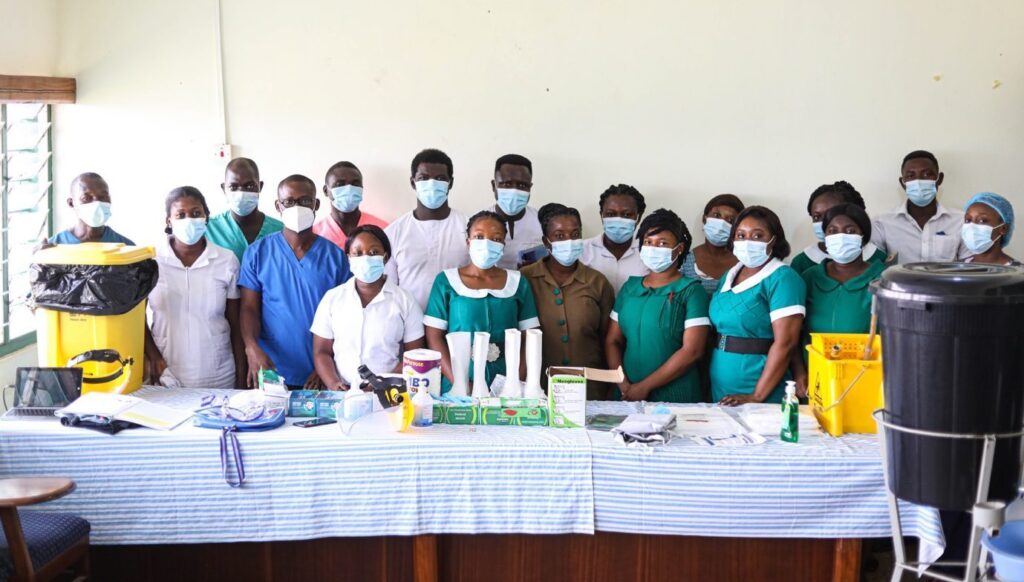
Training people on the pandemic’s frontlines to safely deliver care.
COVID-19 / Revue scientifique approfondie : 12-18 décembre 2020
Cadre national des niveaux d’alerte COVID-19 Cette revue scientifique présente un aperçu des données scientifiques nouvelles et émergentes liées à la COVID-19 pendant la période indiquée. Il s’agit d’une revue de sujets et d’articles importants, et non d’un guide pour la mise en œuvre de politiques ou de programmes. Les conclusions présentées sont susceptibles d’être […]